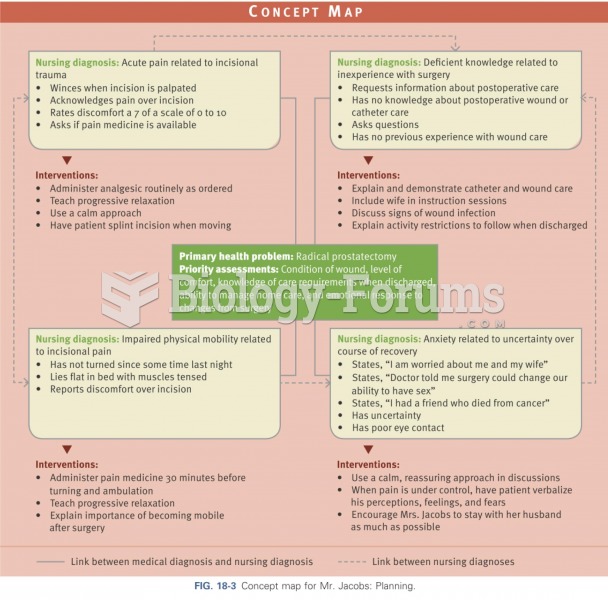|
|
|
Drying your hands with a paper towel will reduce the bacterial count on your hands by 45–60%.
In the United States, an estimated 50 million unnecessary antibiotics are prescribed for viral respiratory infections.
The strongest synthetic topical retinoid drug available, tazarotene, is used to treat sun-damaged skin, acne, and psoriasis.
Eat fiber! A diet high in fiber can help lower cholesterol levels by as much as 10%.
People who have myopia, or nearsightedness, are not able to see objects at a distance but only up close. It occurs when the cornea is either curved too steeply, the eye is too long, or both. This condition is progressive and worsens with time. More than 100 million people in the United States are nearsighted, but only 20% of those are born with the condition. Diet, eye exercise, drug therapy, and corrective lenses can all help manage nearsightedness.







